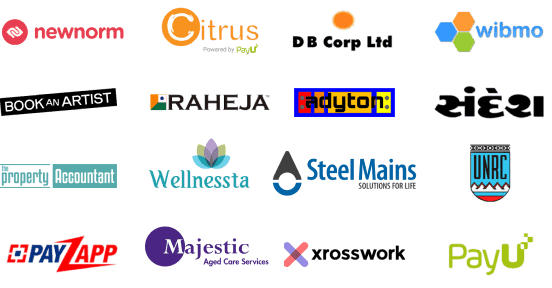Today's marketing isn't just about a generic approach — customers want experiences that speak directly to them. Marketers have the task of constantly refining their campaigns to keep up. Enter the AI-powered marketing automation funnel, a solution that grows with your business. It helps you send the right messages, automates dull tasks, and fine-tunes campaigns using smart tech. Follow along as we show you how to set up a scalable AI-driven marketing funnel with straightforward steps, ideal for CTOs exploring platforms, product managers weighing options, or agencies seeking white-label solutions.
Understanding AI Powered Marketing Automation
What is AI Powered Marketing Automation?
Think of it as blending AI with your marketing tasks — automating stuff like nurturing leads, dividing customers into segments, and tailoring your campaigns. Unlike the usual automation, AI learns from data and tweaks strategies on the fly, bringing better precision and results.
Why Scalability Matters in AI Marketing Funnels
Scalability is about making sure your marketing funnel can handle more leads without faltering. As businesses grow, manual approaches just can't keep up. Scalable AI marketing steps in, adapting to growing demands, finely segmenting audiences, and maintaining that personal touch across all channels without adding more work for you.
Step 1: Define Clear Goals and Funnel Stages
Set Specific Marketing Objectives
Start with specific aims tied to your business needs like getting higher-quality leads or boosting conversion rates. Define what success means and the metrics you'll watch. Metrics like conversion rates, how long customers stick around, and engagement levels are key.
Map Out Customer Journey Stages
Break your funnel into phases: Awareness, Interest, Decision, and Action. Figure out the needs of each stage in terms of content and actions. This way, your automation knows exactly what prompts to use to guide prospects along.
Step 2: Choose the Right AI-Powered Marketing Funnel Builder
Evaluate Key Features
Picking a funnel builder is crucial. Look out for features like:
- Personalization powered by AI to tailor what you offer.
- Integration with multiple channels like email, social media, and websites.
- Lead scoring and predictive insights to highlight valuable prospects.
- Real-time campaign adjustments with AI refining targeting.
- Ability to scale as your audience and data expand.
Consider Integration and Data Security
Ensure your platform easily links to tools like CRM, CMS, and analytics. Verify data security and compliance with standards like GDPR and CCPA to maintain trust and safeguard information.
Step 3: Build Your AI-Powered Marketing Automation Funnel
Develop Targeted Lead Capture Mechanisms
Craft attractive landing pages and forms to draw in prospects at various funnel stages. AI can observe visitor behavior to customize prompts. For example, dynamic forms could alter questions based on prior responses, helping to capture quality leads.
Implement Personalization Automation Across Channels
Use AI-driven personalization to tailor emails, ads, and content. Based on behavior and segmentation, send messages that hit the mark at the right time.
Set Up Automated Lead Scoring and Nurturing
AI steps up lead scoring by looking at engagement trends, demographics, and buying habits. Focus on the leads with the highest scores. Develop nurturing paths triggered by scores or engagement to keep the prospect moving forward.
Step 4: Optimize the Funnel Using Marketing Optimization AI
Use AI for A/B Testing and Predictive Analytics
These platforms automate tests, constantly determining which variants perform better. With predictive insights, you can foresee customer behavior and adjust campaigns as needed.
Analyze Funnel Performance and Adjust Strategies
Use AI dashboards to track essential KPIs in real-time. Spot where prospects are dropping off and use AI recommendations to tweak offers or timing to boost conversions.
Scale Up While Maintaining Personalization
Even as your audience grows, AI ensures top-notch personalization without needing extra effort. Let automation adapt segments and modify content to keep up with trends, preferences, or market shifts.
Real-World Use Case: How a SaaS Company Boosted Conversions by 35%
One SaaS company used an AI-powered marketing automation funnel to push leads from trial sign-ups to paid users. By using AI to score leads and automate personalized content, they divided trial users into intent groups for targeted messages. They pinpointed drop-offs in their onboarding process and added targeted guides, reducing churn. This strategy lifted conversion from trial to paid by 35% in six months, cut down manual campaign work by 40%, and raised customer satisfaction levels.
Best Practices to Ensure Trustworthiness and Compliance
Implement Transparent Data Policies
Be open about how data is gathered, used, and protected. Get customer consent for personalization and explain the advantages to gain trust.
Secure Your Marketing Automation Stack
Choose platforms with strong encryption, access controls, and routine security checks to fend off breaches and ensure system dependability.
Maintain Ethical AI Use
Avoid biases in AI models and continually check how decisions affect customers. Make sure AI-driven communications are respectful and not overbearing.
Summary and Next Steps
Building a scalable AI-powered marketing funnel takes a clear plan, the right tools, smart execution, and tweaking as you go. It frees up your team from repetitive tasks, while delivering personalized, effective customer experiences. By combining personalization with AI optimization, your funnel will grow smartly and respond to data in real-time. Transparency and security are key for earning customer trust and meeting compliance standards.
Invest time in evaluating AI-powered funnel builders, looking at features, integration, and security. Start with a pilot funnel, review the outcomes, and adjust using AI insights. Over time, your marketing strategies will become more efficient, larger in reach, and measurable, leading to improved ROI and customer engagement.
Ready to transform your marketing funnel with AI? Check out reliable AI marketing automation platforms today and learn how they can help create scalable, personalized customer journeys that drive your business forward.





